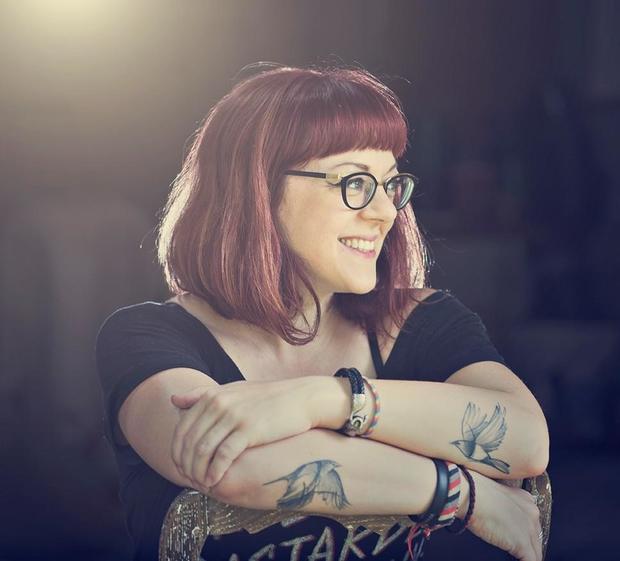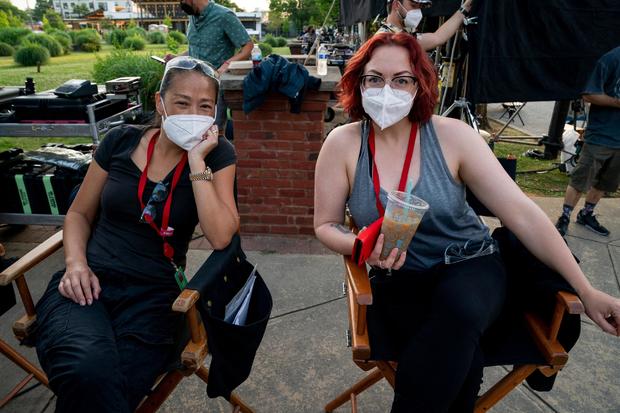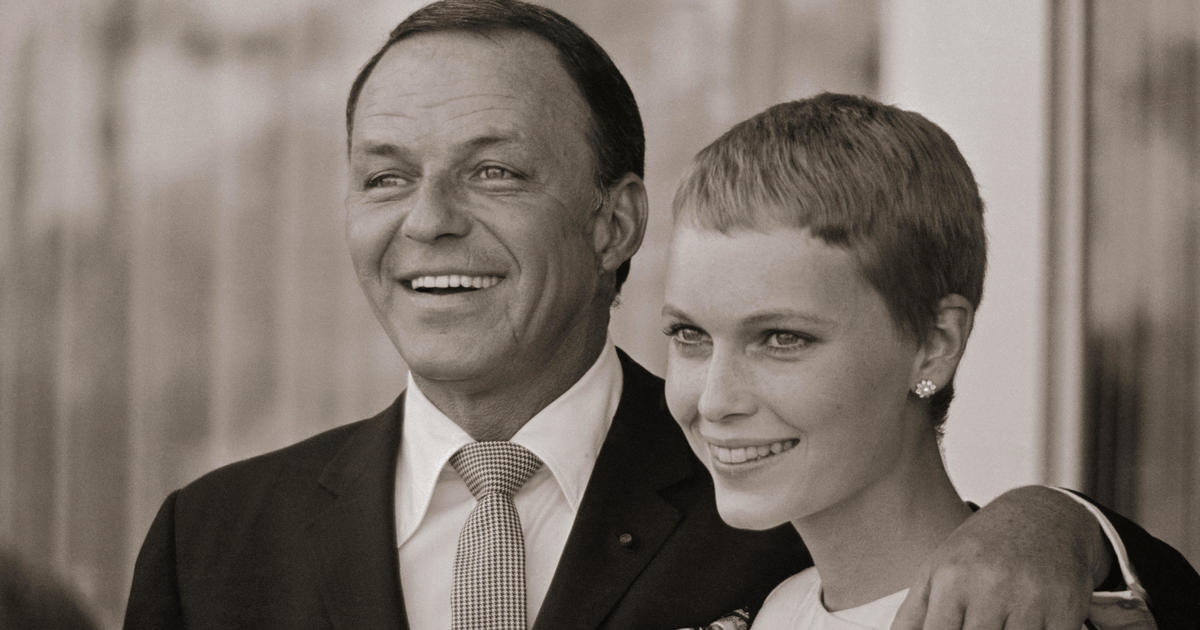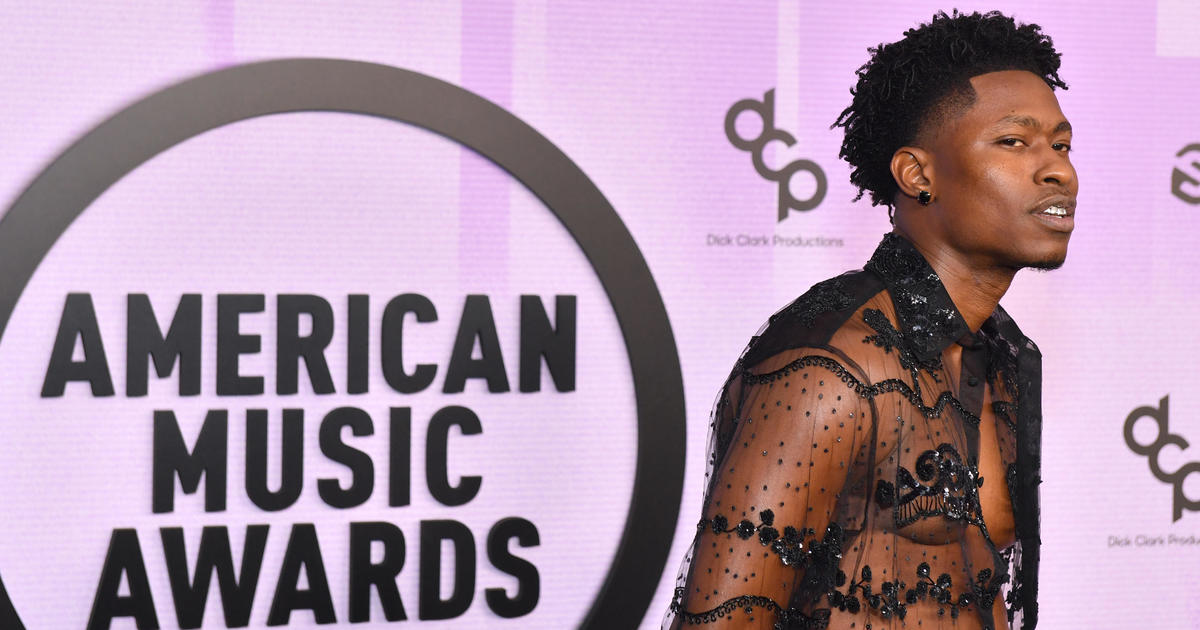Author V.E. Schwab on writing monsters to help her readers fight real life
V.E. Schwab knows a lot about monsters.
When Schwab spoke to CBS News, she admitted that most of her popular works of fiction thrive because of their grittier takes on young adult fantasy. In a genre already crowded by formulaic world building, Schwab takes intense pleasure in treading a thin line between the delightful horror a dangerous monster can produce and the hope her readers come to her for.
Schwab says this comes from a respect for her young adult and teenage readers, who she believes are much stronger than other authors give them credit for.
While the worlds in her stories are always richly decorated and completely varied, Schwab's books all contain several common threads: big bads that are decidedly more evil, main characters with varied and increasingly vacant moral compasses, and odds that seem so insurmountable that they could border on cruelty.
But that doesn't keep her books from being fun. Instead, Schwab's novels delight in how her characters live, and sometimes die, with the macabre, never relying on easy tropes but pushing the boundaries of their worlds and their genre to their limits. Most importantly, Schwab's books maintain a clear and decided respect for their queer characters, often centering the voices of strong female protagonists in a way that defies any claims of pandering and instead relies on the power of existence.
As a New York Times bestselling author, Schwab has published almost a dozen successful young adult fantasy books in 9 years. She said it takes her only four to five months to write a book's first draft, which could be considered a back breaking pace for even the most seasoned of writers. Even more impressive, she she shows no signs of slowing down, with another book, "Gallant," scheduled to release in 2022.
Now, with her first television project, "First Kill," already streaming on Netflix and two other projects in active development, Schwab's body of work has become not just a defining collection of fantasy novels, but an empire on the rise.
CBS News spoke with Schwab about her motivations as a writer, her upcoming big-screen projects and how writing for "an audience of one" changed her life forever.
CBS News: How does it feel to have "First Kill" go from a simple short story to an entire television series? How do your goals change in a process like that?
V.E. Schwab: The thing I keep clutching at right now is that I'm used to being in control of everything, in control of the story, in control of the packaging, in control of the readership, all of these aspects. And this has been an education in how little control I have.
And I think that's probably why I'm such an anxious cat. But, this is what I do. I mean, I have done, for the last 12, 13 years. I'm very bad at adulthood, by the way, like every other aspect of adulthood. But I'm very good at getting lost inside my own head, especially when it comes to writing novels and just telling myself stories. So it's definitely a new environment to be in the communal storytelling space.
Your next two on-screen projects are scheduled to be feature film versions of "A Darker Shade of Magic'' and "The Invisible Life of Addie LaRue." Any updates on your film empire?
V.E. Schwab: Oh, my goodness. The latest script literally got turned in yesterday? I think so. It is very much alive. TV and film sometimes make publishing look fast, which is astonishing to me. I literally finished a novel last month that comes out 18 months from now. But "First Kill" moved so unusually quickly, in like three years from writing it to airing. That is fast for TV.
"Darker Shades" is taking its sweet-ass time. Because it's just such a large scale film, and the budget is so high, I feel like we want to do it right. Everyone at Sony and I want to do it right. It's very much alive and I'm very excited to read the latest script. So I've just been like a waiting, creative purgatory. I guess I should write more books because that's something I can control.
But I'm a popcorn optimist. I'm the person who doesn't believe a thing is real unless I can sit down with a bucket of popcorn and watch it. So I'll say that [I have an empire] when I have maybe four or five things that are on screen.
What are your goals when you're working on an adaptation versus a written story?
V.E. Schwab: Most of the time, the mantra that I live by is like, books are cake and adaptations are icing. Like this is not my industry, this is not the bread and butter. And I'm really good at grounding in that space. But getting to actually see [a project] come to life is an exercise in compromise, because you go from being the god of your creative world to being a minion of a much larger system with many other visions, many other minds, aesthetics and desires.
But it's also such an alchemical process, the sum is so much greater than the parts.
So the positives outweigh the drawbacks as long as, as a creator, you can dissociate the medium. I can't expect this medium to behave the way my books do. It doesn't obey me the way my books do, it doesn't hold as close to my vision, because when you write novels, it is truly the act of transmitting an idea from your head perfectly onto paper. And for a TV show, it is the act of planting a garden and then letting it grow wild.
What are some of your hangups around writing a coming out story?
V.E. Schwab: Coming out stories are incredibly powerful, but they still make sexuality an othering component. The necessity to come out means that you don't belong, means that you're at odds. And maybe this is for me very personal because I didn't need a coming out story, I came out when I was an adult. I've found we've come a really long way in terms of media. But there's still this trend, this emphasis, where if queer characters are the main characters in a story, then the story must be about their queerness.
Well, what that says to a young queer audience is, 'This is why we write stories about you.' Not any other aspect. You might be a competitive swimmer, you might want to be a monster-hunter, you might want to live in genre spaces — "But those spaces aren't about you, though. Your sexuality is the reason you are on this page or on this screen." And that's a very subtle damage. Because what it says if it's not about your queerness, you're not going to be at the center of this story.
CBS News: How do you balance not writing tropes like "bury your gays" with books that heavily feature both diverse characters and stakes that rely on pretty intense levels of danger?
V.E. Schwab: There's just never a world where I write a show or a novel where I'm gonna bury your gays. It's always the biggest frustration for me. We already live in a hard world and I write really dark books. But I always understand that my readers are coming to me for a modicum of hope. And there are certain things I will do to my characters, and there are certain things that I won't.
I feel like there's a super dark answer that I use when I'm talking to readers, which is, If I kill the characters, I can't torture that anymore. So what's the point? It's so much more interesting to push characters to their breaking point and to pull them back from those edges.
I believe in happy endings in stories. They just have to be earned.
CBS News: How do you write joy into horror, especially in a landscape where books that are low stakes and high happy endings seem to dominate the field?
V.E. Schwab: Well, there's a reason why saccharine is so popular. But that doesn't necessarily float my boat. It doesn't give me what I needed as a teenager and it doesn't give me what I want as an adult. For me, what I find powerful is surviving and persevering and thriving against a tide that is pushing you. And we live in dark times, and as a fantasy author, what I do is I try to find ways to make the unquantifiable feel concrete.
Because we can't literally fight the violence epidemic in our country. But like, if they became monsters, then that's something that we can take up and push back against. And I think for teenagers, especially, you feel unheard. You feel impotent. You feel like you can't move the world the way you need to. And so I think one of the reasons I write fantasy is to give my characters and readers, whether they're children, teens, adults, the tools to fight back against a world that won't have them.
What common thread do you see in all of your books?
V.E. Schwab: My main characters are always outsiders. That's the thing about outsiders is that they have the ability to change the world around them if they want to. Like they have the ability to break the mold, they move perpendicular to the story, like the villain. That's like the beautiful thing about villains and protagonists. In stories, what makes them so great is that they don't move parallel to the goals of everyone else, they move perpendicular. I don't want to reduce it to rebellion, but my characters push against the things around them. They find the cracks and try to pry their world open.
When you first started writing books, did you ever think you would have the success you have now?
V.E. Schwab: No. You have to understand that, like, I sold my first book when I was 21. I'm 34. Now I've written 22 published books. But for the first four or five years, I couldn't make ends meet. I was living at home, I made less than minimum wage on the books. Nobody was reading them. I almost quit books at 25.
Essentially, I had this kind of revelation and I wrote a book called "Vicious." And I decided it was going to be the last book that I wrote for publishing. And because I had like, no more f***s to give, pardon my language, I just decided to write something I wanted to read, with no care about how a publisher would ever market it.
And that book changed my entire career. It became my first adult novel and it became the beginning of an entire new chapter. What I took away from that was, I write for an audience of one. Every single thing that I write, I can't control how many people read it. I can't control how the publishers promote it. I can control writing the story that I'm most excited to tell. And so literally every book from here on out, I've only written for myself.





